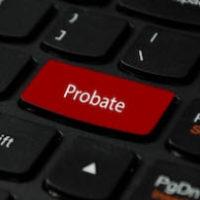Debts In Florida Probate

Probate is a process that can go smoothly, or it can descend into innumerable complex disputes. Nowhere is this more evident than in trying to pay off the debts incurred by the deceased person. Paying off the decedent’s debts must be done before anything can be disbursed to the beneficiaries, so it is critical to understand how to take care of this issue efficiently and fairly.
Not Every Debt Gets Paid
Something important to keep in mind is that in many situations, some of the decedent’s creditors will go home unhappy. Obviously, the personal representative of an estate has an obligation to satisfy as many creditors as possible, but there is a hierarchy to creditors, and if an estate does not contain enough to satisfy every debt, those creditors will remain unpaid. One cannot pay debts, understandably, when there is no money with which to pay them. This does not mean that the estate is somehow defunct – but it does mean that the estate is then bankrupt.
Despite this, some assets are exempt from being sold or otherwise disposed of in order to pay a debt. Vehicles can pass to family members free and clear, as well as any property that is classified as a homestead (you can only have one), plus up to $20,000 of the home’s furnishings. Other than this, most assets owned by the deceased person – even those ostensibly willed to a beneficiary – can be sold in order to pay debts, since those must be handled first before any bequests are given to the beneficiaries.
Do Not Be Coerced
When someone passes away, it is sadly not uncommon for creditors to become aggressive, demanding they be paid first or trying to collect a debt that they have no legal right to collect from that specific person. Creditors do have specific rights under Florida probate law; they must be notified that the person has passed away, and they have the right to file a claim against the estate in order to try and collect the debt. However, they do not have the right to demand payment from anyone outside of the formal probate process.
Once notified by the personal representative that the decedent has passed away, creditors have 90 days in which to file claims against the estate, and they must present themselves in probate court to have a chance to collect. If they do not appear, they lose all claim to the debt, and indeed, all claims against the estate are barred after two years (with rare exceptions like secured liens or mortgages). A creditor who follows the process has a decent chance of being paid; a creditor who tries to obtain payment another way will often be shut out.
Call A Hollywood Probate Lawyer
The complexities of the Florida Probate Code are very often too much for the average person to wade through, especially right on the heels of losing a loved one. If you have questions about probating your deceased loved one’s estate, a Hollywood probate lawyer from the Law Offices of Steven A. Mason, P.A. is happy to try and help you. Call our offices today to speak to an attorney.
Resource:
leg.state.fl.us/Statutes/index.cfm?App_mode=Display_Statute&URL=0700-0799/0733/Sections/0733.707.html
https://www.stevenmasonpa.com/frequently-asked-questions-about-florida-probate/
